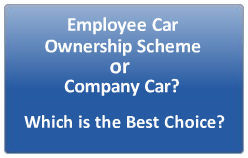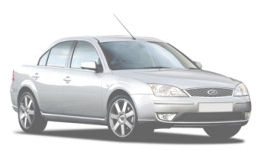 |
|---|
|
| |
| |
 |
|
 |

Vehicle Programme
|

Innovative... Tailored... Tax Efficient...
Vehicle Funding Solutions
Designed to suit your requirements. Maximising the benefits
|
|
| |
|
Having the choice on what car you drive, whilst monitoring the running costs is important to any business user.
Optimising your choice, whilst considering company taxation and depreciation on the car alongside the effect of Inland Revenue rules, needs careful consideration.
|
 |
|---|

Please note: typical fleet size
must be 15 vehicles and above.
|
|
| VFS Vehicle Programme brings you access to: |
|
| |
|
A 'Lease vs Buy' analyser which can show you how to save money, by choosing the right finance method for your business.
A 'Cash or Car' analyser to allow car drivers to check if a cash allowance would save them money.
A wide range of information and help on vehicle finance, including car and fuel benefit calculators and the latest rules on company car taxation.
Specialists in providing unique tailored solutions for your own Employee Car Ownership Scheme or Employee Car Management Scheme, enhancing employee benefits packages in value and choice.
Professional purchasing negotiation directly on your behalf with individual vehicle manufacturers after gaining Inland Revenue approval for the scheme chosen.
A free health check for fleets over 15 vehicles with award winning analysis tools. We will assess the cost saving opportunities against your current fleet financing.
|
|
Employee Car Ownership Schemes
One option that has been considered by over 40 per cent of large companies is an Employee Car Ownership Scheme (ECOS). This alternative to the traditional company car arrangement is designed to provide the employee with the same hassle-free motoring as a company car, whilst eliminating the associated tax and National Insurance burdens.
The crucial difference between an ECOS and a company car is that the employee owns the vehicle from day one, purchasing the vehicle by means of a credit sale agreement. The employee benefits from the company's bulk-bargaining power and corporate discount levels, but because the employee owns the car there is no company car tax to pay. This can represent additional savings to both the employee and the organisation, as the tax and National Insurance saved by both parties can contribute towards the cost of running the vehicle.
Typically, the employee makes a contribution to the cost of their car which is deducted through payroll and which is often lower than the tax they have saved. The employer provides funds towards the additional cost of the car through a combination of tax-free expenses for any business mileage and a further taxable allowance if the other amounts do not meet the full cost of running the vehicle. As with a company car, elements such as insurance, road fund licence, repairs and maintenance and breakdown cover can be included in the arrangement, so the employee has no additional costs to pay and receives the same level of service from the vehicle provider as they would if driving a company car.
A carefully designed Employee Car Ownership scheme can offer the following benefits to employees:
• Protection against future increases in company car taxation
• Opportunity to purchase a car using employer discounts
• The company can continue to arrange and provide insurance cover for employees
• Savings can be shared by the employer
Whilst an ECOS can provide significant savings to some organisations, there are a number of factors that influence whether this type of arrangement is suitable. For example, fleets with a significant proportion of higher rate taxpayers with high levels of business mileage will typically see the highest level of savings due to the following factors:
• The ECOS is partially funded through tax-free Inland Revenue Approved Mileage Allowance Payments for business journeys made in an employee's own vehicle. Clearly, the higher the level of business mileage the larger the amount that can be paid to the employee tax-free.
• Individuals, who pay higher rate tax will have made a larger saving from moving out of a company car and will therefore, have a higher sum available to contribute to the cost of their ECOS vehicle.
Any organisation considering ECOS should seek advice from an experienced advisor to identify whether this arrangement would be appropriate. For some companies, for example, it has been most beneficial to introduce an ECOS for suitable employees, whilst retaining a parallel company car scheme for other drivers. In addition to detailed financial modelling, other areas which need to be addressed, include:
• Careful design to obtain Inland Revenue clearance
• Some employment contracts may need to be renegotiated
• Staff turnover needs to be dealt with cost-effectively
• Payroll and administration, particularly the recording of business mileage to make most effective use of tax-free mileage payments
• Legal issues around credit sale agreements and salary deduction authority should not be underestimated
• Communication of the Scheme to employees
A Question of Cash
Many organisations appear to have asked themselves: 'Why not simply replace the company car with additional salary and let the individual decide for themselves the most effective way to spend it?' They have responded to this by offering cash alternatives to company cars.
A well-designed cash alternative scheme can both increase employee choice and reduce the administrative hassles for the company if take-up levels are sufficiently high, however, as mentioned at the beginning of this article, take-up levels by employees remain fairly low at this time. In order to be both attractive to employees and cost-effective for the organisation, the level of cash allowances needs to be carefully calculated. In addition, a great deal of attention needs to be paid to the health and safety issues which arise when employees drive their own cars for business purposes.
The Way Ahead?
Whilst the changes to the tax regime by no means heralds the death of the company car, increasing pressures from finance departments and the employees themselves to deliver maximum value for money, guarantee that alternatives to the traditional company car scheme will become an established element of reward strategy for an increasing number of organisations in the future.
|
|
|
To find out how you can benefit, let us provide you with an impartial review of your existing fleet facilities and help advise you on the best fleet finance solution for your business. Contact Us today for independent professional advice.
|
|
|



